- Home
- Peter Cawdron
We Are Legion (van Helsing Diaries Book 2) Page 7
We Are Legion (van Helsing Diaries Book 2) Read online
Page 7
“Ah,” I say, running my hand through my hair and trying not to sound crazy, even though I know he’s already accepted what I’m struggling to believe. “My wife. She’s a psychologist working with the police. She was investigating a string of murders and suicides, and…”
“And,” Vladimir asks as Adriana sits down next to him, resting an aging shoebox in her lap.
“And she attacked me.” There’s no other way to explain what happened beyond simple, brutal facts. “I ended up in the hospital. Joe saved my life. We followed her here.”
Vladimir nods softly before saying, “You know she is dead, and has been for some time.”
I hang my head. I’m not sure exactly what he means, but in my heart I know he’s right. Jane may be in those ruins, but that’s not the woman I married. A single tear runs down my cheek. Joe is silent.
Adriana opens the shoebox and rummages through an old book with aging, yellowed pages. She picks out a letter sealed in plastic to protect its contents, and hands it to me.
“What is this?” I ask, accepting the letter and seeing it has been written in old fashioned cursive English. The writing is compact, written in old style cursive, with words running smoothly into each other. Although there are no lines drawn on the page, each line of writing is perfectly parallel with the next. The first letter at the start of each paragraph has a flourish, being slightly larger and more eccentric than the others. Writing in this age was an art.
“It is a copy of a letter sent from Professor van Helsing to Mina Harker.”
“From the novel?” I ask. “Dracula?”
“From after the events in the novel,” Vladimir clarifies.
I read the letter with focused attention. Even with a cursory glance, I can tell the letter is being sent in response to a query from Mina. The professor is addressing concerns, quoting parts of Mina’s letter back to her. In my mind, I can hear an aging Dutch professor talking with a slightly clipped accent and genuine concern, responding to the emotional pleas of a young English woman with a soft voice.
My dearest Mina,
My heart springs with joy whenever I hear from you, but I must admit, the contents of your latest letter are deeply troubling. Our lives are bound by events both tragic and triumphant, but to hear you write of the toils of your wonderful husband Jonathan is a burden to my soul.
As our correspondence takes weeks to transit the continent to England, I have taken the time to quote your letter so as to refresh your memory as I address your concerns.
“He is distant. He has never been the same, and I worry about him.”
Such an evil as we faced that day in the Carpathian Mountains takes its toll on a man, with those few months spent hunting that evil monster stealing years from all of our lives. And none was more afflicted than Jonathan, who faced this foul creature in his lair, who witnessed such horrors as we cannot imagine. He was imprisoned for months in that foul castle. You must understand the burden he bears, one that time alone cannot erase.
“Wolves ransacked our home. Wolves! I had no idea such beasts had made it to England from Europe, but Jonathan wasn't worried. He said they must have escaped from the zoo or some private reserve. They appeared for days on end, out on the fence line, by the forest. One day, I could have sworn I saw Jonathan out there with them, but his form was only barely visible through the shadow of the trees. When I asked him about it, he denied it, of course. Tell me, my dear Abraham, am I going mad? Have I become like poor Renfield?”
You are most certainly not mad, Madame Mina. There is much we do not know about the Count and his vampiric horde, but we know they possess power over the baser things, the lowly fox, the bat, the rat, and the wolf. Why you should receive such a strange visitation, I know not. As you were both bitten, you both have required much time to heal, but the wounds of the heart heal slowest of all.
“At length, he will disappear for days on end, and I know not where he has gone. I ask him, but he’s evasive. He wonders why I attach such importance to something so trivial, and would no doubt scold me for troubling you—but to abandon a wife and child without notice—I fear for him. He says it is business, that I wouldn’t understand, but our business is in London, not Cardiff or the Cotswolds.”
If I did not know all you have endured together, I would dismiss such comments, thinking Jonathan is shielding you from something base, perhaps because he seeks to protect you. But there is no horror that could compare to those dark days in London when we first wrestled with the Count.
“Forgive me for presuming to discuss matters personal, but I have nowhere to turn, no one else I trust. Jonathan, he scratches me. When we are together as a husband and wife, he is as a wild animal. Sometimes, I am sick for days afterwards. I am forced to wear a high neck blouse to hide the wounds festering on my skin. I bathe them with iodine, but they are ruddy and sore, slow to heal.”
You must come to me, my dear Mina, both you and Jonathan, but without word to him as of why. It is nigh on seven years since we defeated the Count, and yet I fear his dark visage still casts a shadow across our lives.
Tell Jonathan we should meet in Transylvania to celebrate our hard-won victory, to remember both our triumph and our fallen comrades. Perhaps in the ruins of that desolate castle, we will find answers to the questions that plague all our souls.
Be safe, Mina.
Keep your thoughts to yourself.
And remember…
I am forever yours,
Abraham van Helsing.
My hands are shaking.
“How is this possible?” I ask, recognizing the parallels with what happened in my own life on that dark winter day little more than a week ago.
I hand the letter to Joe. He skims through it, but from the look on his face, he catches the similarities as well. He shakes his head softly.
Adriana says, “You are lucky to be alive.”
“Do not be fooled,” Vladimir says, taking the letter from Joe and handing it back to Adriana with the reverence of a priest conducting Holy Communion. “The myths of your childhood have a basis in reality.”
I look to Joe, hoping he’ll say something to dispel this nonsense, but even with his limited exposure, he’s solemn, taking this seriously.
“I don’t know what to tell you,” he says, raising his hands in a gesture that conveys frustration. “I don’t want to believe this stuff. But I’ve got to say, this letter reads like it was written about you and yet it’s over a hundred years old. I mean, wolves tearing up your apartment. Jane attacking you with a cocktail of bacteria and viruses only found in bats. Back in Boise, Idaho, there’s no way I’d believe anything like this was possible. But here? It’s like the old world and the new have collided.”
He looks at the floor, shaking his head in disbelief as he adds, “But this is Jane we’re talking about.”
“Not any more,” I say.
Vladimir says, “We live in an age where superstitions are banished, and the vampire uses that to hide. Doubts, rumors, disbelief—These are its allies.”
“But even if Dracula is true,” I say. “He died. They killed him, right? At the end of the book. Stake through the heart, and all that stuff.”
Adriana surprises me with her adamant reply.
“They destroyed the body, not the soul.”
She’s young, she’s intelligent, she’s educated, and she believes this, not that belief holds any credence on its own, but I can see that for her this is a harsh reality, a blight on her life.
“None of us want to accept this,” she says in her soft-spoken, deep, feminine voice. “But that choice is not ours. Evil exists. It must be destroyed.”
My head is spinning. I don’t want to accept the existence of vampires, and yet there’s no other explanation. Fight as I may, acceptance offers answers—answers I don’t like, but answers nonetheless.
“Okay,” I say, sitting forward and resting my elbows on my knees as I glare at Vladimir, looking for any gaps in his mental armor, anything to overthrow this
medieval superstition. “So how does this work? You’re describing what is essentially a shadow life-form that has gone undetected on Earth for, what? Centuries?”
“Millennia,” he says without skipping a beat.
Adriana says, “Not undetected. Overlooked. Misunderstood.”
And I nod, appreciating the distinction she's making.
“Yes.”
“Fear has been the greatest weapon of the vampire,” Vladimir says as the door again rattles, shaking with the violence of someone pounding on the thick timber. The storm lashes the small cottage. Howls of anguish pierce the night, and I am hard pressed to attribute them to the wind.
The two brothers sit on the table with their legs resting on chairs. They’re silent, listening to our conversation. One of them holds a rifle, the other a knife. And I struggle to dispel the notion they expect the door to come crashing in at any moment and so are ready to fight.
“Ignorance has been our undoing,” Adriana says.
“So what is it?” I ask, even though it feels unnatural to speak of my wife using a neutral pronoun.
Vladimir says, “The vampire is older than civilization, having haunted us through every age.”
“Now, I have a problem with that concept,” I say, not meaning to sound defiant, but picking up on what I think of as a flaw in the logic. “Like any epidemic, the prevalence of vampires would have to wax and wane.”
Turning to Joe, I say, “Think about polio or smallpox prior to vaccination, and how these diseases moved through population centers, culling the herd.”
“Exponential growth,” Joe says, picking up on my thinking. “Yes, he’s right. If there are vampires, they should go through cycles of boom and bust, just like any other disease. They couldn’t help but become exposed as they spread through a population. And once they exhaust local resources, they’ll slump, just like viral outbreaks.”
Vladimir smiles.
Being a doctor, Adriana understands what we’re describing. Using terminology and concepts we're familiar with, she says, “But this is not a disease that spreads unchecked like a virus. It is an intelligence. The vampire is not a contagion, passing from one person to the next and multiplying as it spreads, it is a predator, a creature of unspeakable terror.”
Footsteps pound on the roof, distracting me for a moment, and I glance up at the rafters, but these are not the steps of a human, there’s a pattern to them, a surge of motion characteristic of quadrupeds. Wolves.
“Go on,” Joe says, gesturing for Adriana to continue.
“A creature?” I ask, not meaning to interrupt, but wanting clarification. “Creature singular? So there’s just one of these things?”
Vladimir says, “Legend speaks of many. They are led by Nosferatu, lord of the vampires.”
“And Jane is now one of them? One of these vampires?” Joe asks, clarifying what I know is true but dare not confess myself.
“Yes,” Vladimir replies.
“How?” I ask. “Was she bitten?”
“All that is required is touch,” Vladimir says. “The vampire may bite, but it is not necessary. Any physical contact allows energy to flow.”
“Vampires are intelligent,” Adriana says. “They are not driven to multiply, but to survive, and so this creature in the ruins, she hides.”
“Hides?” I say, looking at Joe. “Why?”
Adriana shakes her head softly. Vladimir is quiet.
Joe asks a good question, “Maybe it's waiting for something?”
“Like what?” I ask.
Vladimir says, “We know so little, and our ignorance only increases its strength. My forefathers have fought these monsters since the thirteen hundreds, passing on what they have learned from father to son.”
I rub the grit forming in the corners of my eyes, desperately wanting to develop a coherent understanding of what we’re dealing with.
“And it can switch bodies?” I ask, still using the word “it” as a description of the vampire instead of “she,” or “he.”
That this unholy creature can switch so easily between identities is unnerving. At any given time, it is impossible to tell where the vampire is beyond following a trail of dead bodies.
“What?” Joe asks, surprised by the notion. “So vampires can swap bodies?”
“Yes. They steal bodies from both the living and the dead,” Adriana replies.
I get up and grab my bag, pulling the ragged copy of Dracula from the side pouch along with the notes I made while listening to the recording Jane made when she confronted Jasmine Halter.
“So all this,” I say, holding up the novel.
Adriana completes my sentence, saying, “It is an attempt to expose the monster.”
Sitting down again, I unfold my notes, scanning them briefly.
“Jane spoke to it,” I say, feeling a knot form in my throat. “She recorded her conversation. This was before—must have been before she… she died.”
Those words.
Grief wells up in my heart, threatening to overwhelm me, but I push on. I have to. For Jane.
Reading her last words aloud, I get a glimpse into the courage Jane had in facing such evil alone. She must have felt she had no other option. Who would believe her? I am ashamed to think I would have tried to talk her out of such nonsense. And yet now I’m proud of how brave she was. She refused to back down in the face of terror.
Taking a deep breath, I say, “The vampire spoke of itself in the plural. Jane… my Jane asked a housewife, a normal goddamn housewife, Who are you?”
In that moment, the storm eases and a calm descends on the cottage. The rain still falls, but the fury of the storm abates. It is as though the creature is listening, waiting for the reply, and I cannot help but feel we are being watched.
Tears fall from my eyes as I continue, quoting from the recording. “Who am I? My name is legion, for we are many.”
“Many?” Joe says as thunder breaks overhead, shaking the cottage.
“It’s a quote,” I say, refusing to be intimidated by the storm. “From the Bible. From the New Testament. Christ confronts a man among the tombs. He’s possessed. And the demon says, My name is legion, for we are many.”
In a soft voice, Vladimir says, “Interesting.” And I can see he’s holding himself back from saying anything else, not wanting to cut me off.
“Ah,” I say, pausing for a second as I gather my thoughts. “According to the scripture, the demon possessed two thousand pigs and drove them into a river or a lake or something, drowning them.”
“Two thousand?” Adriana asks, as surprised by the number as I was when I first read that section in the Gospel of Mark.
“Do you think this is significant?” I ask of Vladimir.
Vladimir doesn’t rush to answer. He’s thinking, weighing all he knows against what I’ve just said.
“We have seen the creature spread,” he finally says. “But never on that scale. Never more than four or five at a time. The masters keep them close.”
“Bodyguards,” Joe says.
“The sisters,” I say, pointing at my tattered copy of Dracula. “And Lucy.”
“Yes,” Vladimir replies, with that one lone word capturing generations of learning slowly accumulating within his family.
Adriana says, “Vampires need a host. They can revive the dead to gain an empty shell, but only within three days. A living host must be displaced.”
“Swapped,” I say, remembering Jane's cryptic notes about the chain of transmission she followed to Jasmine Halter.
“Yes,” Adriana replies.
“You said it hides,” Joe says, reviving an earlier point as he addresses Adriana.
“Yes.”
“Risk mitigation,” I say, understanding what Joe is getting at. “If there are thousands of them, they could spread to thousands of people.”
“That would avoid the limitations of a single presence,” Joe says.
“But increases the risk of detection,” I say, completing h
is thought. “As that’s the sort of thing epidemiologists would pick up on in a heartbeat.”
“So the creature is balancing risk,” Joe replies. “Avoiding attention. Spreading only so long as it can remain hidden.”
“Yes,” Vladimir replies.
Thunder breaks overhead again, shaking not only the building but my bones. I cannot help but think the vampire is listening, raging against us, incensed by our reasoning. Rain pounds the roof, coming down in waves, surging as the storm rolls through the tiny village.
Joe doesn’t seem bothered by the weather. He says, “Living for thousands of years, such a creature would have plenty of opportunity to adapt its strategy to suit the times, fluctuating depending on cultural awareness.”
“Yes,” I say. “If there’s lots of fear and ignorance.”
“Spread wide,” Joe says, completing the thought.
“Rational thought,” I say.
“Consolidate,” he replies. Joe shakes his head, saying, “Damn. We’re fighting what amounts to an intelligent virus, one that can spread with ease but seeks to evade detection.”
Adriana says, “The creature comes out fighting only when cornered.”
“But why this strategy?” I ask, hoping this is the question on everyone’s mind.
“Maybe it’s a parasite?” Joe replies. “Maybe it’s unable to exist outside of a host and so is threatened by us, knowing we would eradicate it.”
Adriana says, “Vampires know no pity.”
“We are vermin to them,” Vladimir says. “Nothing but rats. In their eyes, we are a plague on this world.”
“To them,” I say, agreeing with the old man. “We’re pests.”
Adriana puts it more bluntly.
“We’re food.”
“So how do we kill it?” Joe asks. “I mean, should we be grabbing garlic and a crucifix?”
“Garlic, yes,” Adriana says. “It overwhelms the vampire’s acute sense of smell. But a crucifix? No. That is part of the myth.”
Joe asks, “So they suffer from some kind of anaphylactic shock?”

 Alien Space Tentacle Porn
Alien Space Tentacle Porn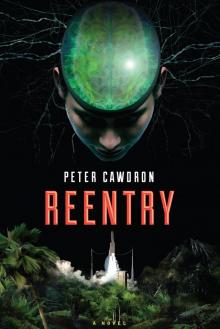 Reentry
Reentry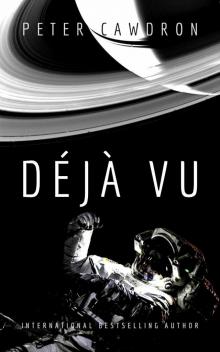 Déjà Vu (First Contact)
Déjà Vu (First Contact)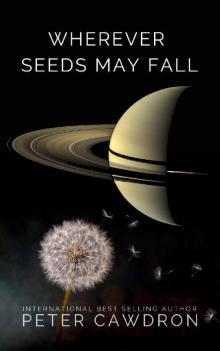 Wherever Seeds May Fall (First Contact)
Wherever Seeds May Fall (First Contact)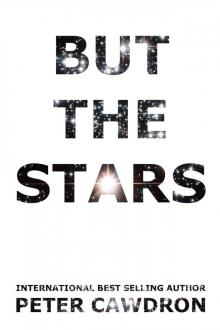 But The Stars
But The Stars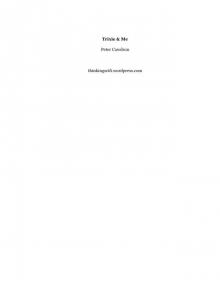 Trixie & Me
Trixie & Me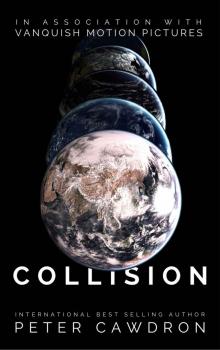 Collision
Collision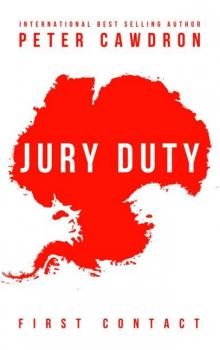 Jury Duty (First Contact)
Jury Duty (First Contact)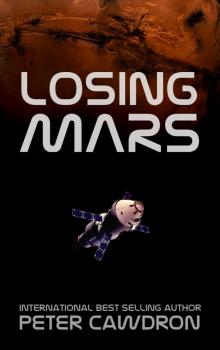 Losing Mars
Losing Mars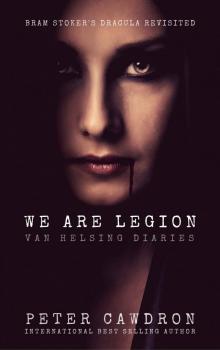 We Are Legion (van Helsing Diaries Book 2)
We Are Legion (van Helsing Diaries Book 2)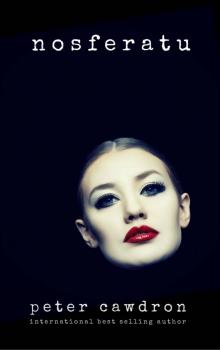 Van Helsing's Diaries (Books 1-3): Nosferatu
Van Helsing's Diaries (Books 1-3): Nosferatu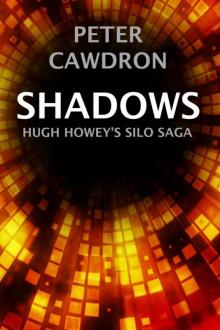 Shadows
Shadows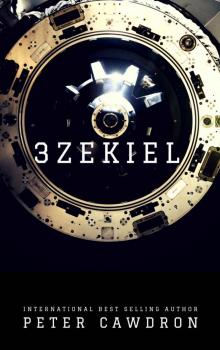 3zekiel (First Contact)
3zekiel (First Contact)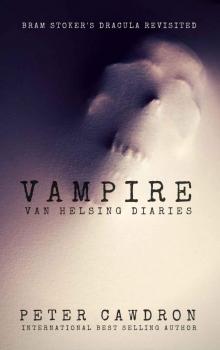 Vampire (van Helsing Diaries Book 1)
Vampire (van Helsing Diaries Book 1) Xenophobia
Xenophobia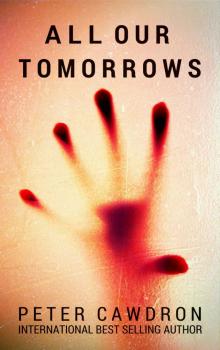 All Our Tomorrows
All Our Tomorrows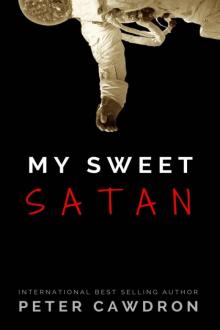 My Sweet Satan
My Sweet Satan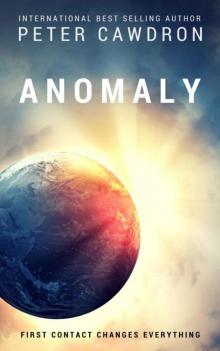 Anomaly
Anomaly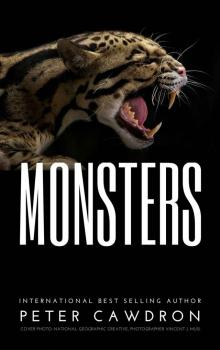 Monsters
Monsters